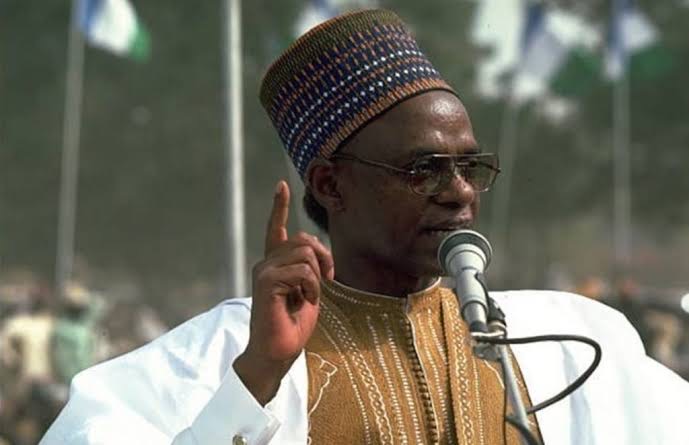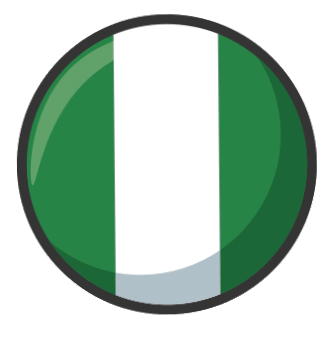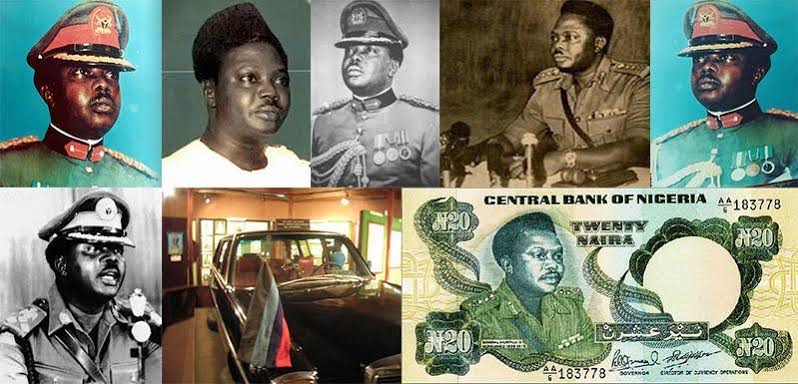
Shehu Usman Aliyu Shagari, born on February 25, 1925, in Shagari, Sokoto State, was a Nigerian politician who made history as the first executive President of Nigeria’s Second Republic, serving from October 1, 1979, to December 31, 1983. A teacher by profession, Shagari’s long and distinguished career in public service spanned several decades, holding various ministerial portfolios before ascending to the nation’s highest office.
Early Life and Education:
Born into a Sunni Muslim Fulani family, Shagari began his education at a Quranic school. He attended Yabo elementary school from 1931 to 1935, followed by middle school in Sokoto from 1936 to 1940. He then proceeded to Barewa College from 1941 to 1944. From 1944 to 1952, he trained as a teacher at the Teachers Training College in Zaria, Kaduna. After his training, he worked as a visiting teacher in Sokoto Province from 1953 to 1958 and was also a member of the Federal Scholarship Board.
Early Political Career:
Shagari’s political activities began as early as 1945 when he founded the Youth Social Circle in Sokoto as a teacher. He officially entered politics in 1951, becoming the secretary of the Northern People’s Congress (NPC) in Sokoto, a position he held until 1956.
In 1954, he was elected to his first public office as a member of the federal House of Representatives for Sokoto West. His political ascent continued, and between 1958 and 1975, he held various significant cabinet positions as a federal minister or commissioner. These roles included:
- Parliamentary Secretary to the Prime Minister, Sir Abubakar Tafawa Balewa (1958-1959)
- Federal Minister for Commerce and Industries (1958-1959)
- Federal Minister for Economic Development (1959-1960)
- Federal Minister for Pensions (1960-1962)
- Federal Minister for Internal Affairs (1962-1965)
- Federal Minister for Works (1965-1966)
- Federal Commissioner for Economic Development, Rehabilitation and Reconstruction (1970-1971)
- Federal Commissioner for Finance (1971-1975)
During his time as Commissioner for Finance, he also served as a governor for the World Bank and a member of the International Monetary Fund (IMF) committee of twenty.
Presidency (1979-1983):
After a period of military rule, Nigeria transitioned back to civilian governance, and Shehu Shagari, under the platform of the National Party of Nigeria (NPN), contested and won the keenly contested 1979 presidential election. He was sworn in as the first executive President of Nigeria on October 1, 1979.
His administration prioritized economic development, focusing on agriculture, industry, housing, and transportation. Key initiatives and projects during his presidency included:
- Green Revolution: A program aimed at boosting agricultural productivity by providing farmers with improved seeds, fertilizers, and modern equipment.
- Industrialization: Commissioning the Ajaokuta Steel Mill, which was intended to be the bedrock of Nigeria’s industrialization, and completing the Delta Steel complex. He also oversaw the establishment of other steel rolling mills in Osogbo, Katsina, and Jos, and the Aluminium Smelter Company of Nigeria at Ikot Abasi. The Kaduna refinery was also completed and began operations during his tenure.
- Housing: Aiming to build 200,000 housing units, with about 32,000 completed by 1983, marking the largest public housing project in Nigeria at the time.
- Transportation: Launching extensive road networks across the country, including those leading to the new Federal Capital Abuja. He also improved seaports and commissioned new river ports. In aviation, he created the Ministry of Aviation and built new airports, while Nigeria Airways acquired new aircraft, expanding its network across Africa.
Despite these efforts, Shagari’s administration faced significant challenges, including a global oil glut in the early 1980s that severely impacted Nigeria’s oil-dependent economy. The government introduced austerity measures and import restrictions, but economic instability persisted, exacerbated by widespread allegations of corruption within his administration. In 1983, his government controversially ordered the expulsion of over two million undocumented West African migrants, primarily Ghanaians, a decision that drew international criticism.
Shagari won re-election in the 1983 presidential elections, but his second term was short-lived. On December 31, 1983, his government was overthrown by a military coup led by Major General Muhammadu Buhari, citing corruption, economic mismanagement, and political instability as justifications.
Post-Presidency:
Following the coup, Shagari was arrested. He was later cleared of personal corruption charges and released from detention in 1986, though he was banned from participating in Nigerian politics for life. He largely retreated from active politics, living a quiet life in his hometown of Shagari, Sokoto State, and serving as a respected elder statesman, offering counsel on national issues.
Shehu Shagari passed away on December 28, 2018, at the age of 93, at a hospital in Abuja. He is remembered as a humble and principled leader who, despite the challenges and controversies of his presidency, laid foundational infrastructure and economic plans for Nigeria.









Add Comment